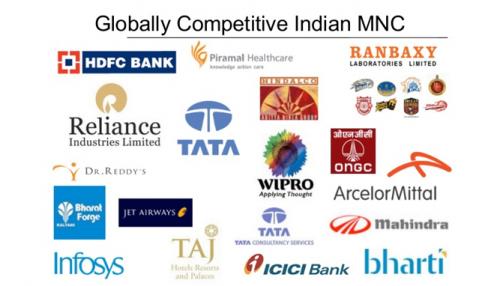Indian Multinational's - How to create a global Business Travel program

ProKonsul is a business travel consultant to multiple clients in this segment, in India & emerging markets
There are a significant number of global multinationals that have their origins in India. Tata, Reliance, Tata Motors, Mahindra & Mahindra, Rajesh Exports are just some examples. Most of these companies are in the Fortune 500 listings.
While these companies are world-class, their global business travel programs are still very nascent. Much of their travel buying in international markets are decentralized with individual offices securing local vendors and purchasing retail.
As a business travel consultant to many companies in this segment, these fast-growing corporate entities have found incremental value by creating an integrated global travel management program. It is expected that given the fast rate of growth, building scale will be the most important aspect of their future corporate strategy.
Listed are the top three success strategies that these organizations can implement;
1. Create a consistent global framework of travel strategy and policy
The first step involves establishing a common global travel strategy & related policies. These will facilitate easy administration and consistent implementation. Rather than give in to variances at an individual market level, the company should strive for a simple yet effective travel policy.
The policy should accommodate different business units and corporate hierarchies that may exist across markets. The approval framework should ideally be common or similar. The key to achieving success globally is to reduce excessive variances based on individual market operations. This is however likely to be difficult. It is advisable to create standard operating templates and allow individual countries to select from one of the templates defined centrally.
Recognizing regulatory, government and tax-related obligations should be factored at the outset to ensure compliance. Recovering permitted VAT / GST on domestic in-country expenses from the outset is important. Similarly, Global VAT Reclaim of overseas travels to designated counties should be planned initially - this will impact structuring the travel policy. A focus on such initial optimization will have long term benefits financially & create an optimized travel program.
Most developed economies have a very stringent corporate duty of care obligations. Such obligations can have a far-reaching negative impact on the corporate entity. Its board of directors can be exposed to litigation and expenses. When structuring a global travel program, such legal obligations must be factored and built into individual country programs. Alternatively, there could be a single consistent approach to Duty of care at a global level which can account for a simpler implementation.
When building such programs, engaging an external business travel consultant like ProKonsul, ensures that all primary factors are accounted for.
2. Aggregate buying and consolidate purchase data
Most global business travel industry leaders don’t recognize these multinationals as significant buyers. This is because of disaggregated purchasing that these companies prefer. It is common to find individual market offices purchasing through local travel agencies, online channels & airline/hotel websites.
There is limited or no data available which supports their total aggregated global purchasing power. Nor do they have data to outline productivity by respective airlines, hotels and other business travel partners. Given this, the first step that these organizations need to take this to consolidate data, for the preceding period. Some level analysis by respective destinations and vendors can provide a baseline for initiating a strategic sourcing function.
3. Adopt technology to develop a global travel program
It is important to create a technology lead global travel program. While having a single vendor across all geographies may be a challenge, establishing a common technology-led fulfillment is key. This will allow simple and consistent enforcement of global travel policies. Apart from generating data, technology can also automate expense claims and settlements.
As a business travel consultant, we have seen that deploying technology intelligently, reduces costs and optimizes resource deployment.
The best approach is to start a phased global travel program launch targeting primary markets first. This would allow for a progressively phased roll-out in secondary markets, eventually leading to a full global program. Self booking technology implemented with utilities like Single sign-on & HR / ERP integration in different markets would eliminate the need for individual in-country travel managers. This will also generate consistent data from every global office. The central sourcing team will get a clear line of sight to transactions, spend and fees being incurred in different locations.
Today, apart from global business travel industry majors there are several products, based on mobile apps, that eliminate the need for paper filing of expenses. In addition to user convenience, they offer increased compliance and data capabilities.
Given the rapid growth in turnover and global footprint, multinationals based in India & Emerging markets should invest in creating a global travel program. This will be an important step in building scalability & sustainable growth.
Source URL:- https://prokonsulconsulting.com/indian-multinationals-how-to-create-a-global-business-travel-program/
Comments